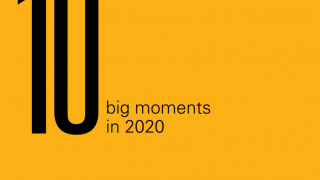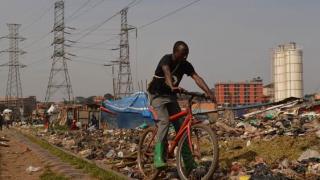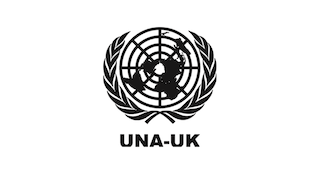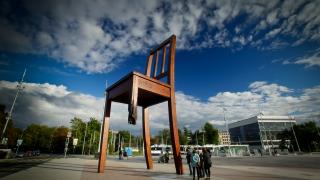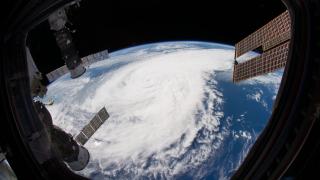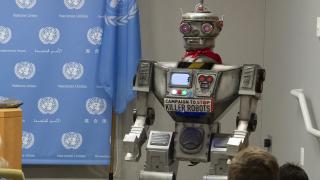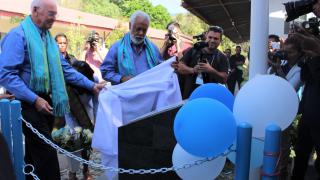
Minh-Thu Pham argues that defending the idea of a global system does not have to mean defending all of the ideas that the system supports
At the start of the United Nations’ 75th year a crisis in confidence has gripped the institution and unnerved practitioners and observers of global politics. Recently, countries that were among the original founders of the current world order have taken steps to withdraw from multilateral alliances and agreements, and their leaders have made questioning the value of existing global arrangements a core part of their political platforms. After the United Kingdom’s referendum on withdrawing from the European Union, the Trump administration came into power and withdrew the United States from the Iran nuclear deal, acted on its threat to withdraw from the Paris Climate Agreement, and started trade wars with competitors and allies alike. Worryingly, their actions have emboldened leaders in many other parts of the world.
The debate about the causes of this crisis has focused on great power politics, the competition posed by rising powers, and the credibility and effectiveness of longstanding institutions like the United Nations. As a result, the conversation about what to do has been centered on ways to reinvigorate multilateralism and its institutions, including through forming like-minded alliances of supporters among Western democracies and having them recommit to multilateralism, as in the case of the recent French-German initiative: “the Alliance for Multilateralism”.
The answer so far has been to try harder and do more between countries. But much of the debate has ignored the elephant in the room, which is a genuine concern over whether the rules-based international order has actually been a force for good within countries, or whether the liberal order has been used to export an economic system that has failed so many people, led to vast inequality and power asymmetries, and resulted in the domestic consequences we’re seeing – Brexit, Trump, and growing nativist populism.
Without the right diagnosis, we risk coming up with the wrong treatment.
Decisions to withdraw from multilateral arrangements are the end result of the growing scepticism among citizens in the West about the benefits of globalisation and, along with it, the international order. This order and its institutions were meant, in the words of its founding document, the UN Charter, “to save succeeding generations from the scourge of war…reaffirm faith in fundamental human rights, in the dignity and worth of the human person…and promote social progress and better standards of life in larger freedom.”
Instead, over the last couple of decades, among a large segment of working-class populations in the West, there has been a sense, fair or not, that no matter how hard people worked or how much trust they put in their government, it was near impossible to make an honest living. The so-called losers of globalisation weren’t compensated for the loss of jobs as a result of trade or the global economy, and their leaders and public institutions weren’t able to provide adequate safety nets or uphold the social contract.
Much has been written about people who have felt that the system was stacked against them, rigged – or even corrupted – in favour of, and controlled by, forces in far-off places. That sentiment has been exacerbated by the grievances of those who think their historical privilege has been eroded. As has been the case throughout human history, these attitudes can lead some people to be susceptible to nativism and pinning blame on outsiders. Of course, these sentiments have existed for many years, but they have ballooned and now burst into political revolt at the ballot box against the outside forces that are thought to have manipulated the system – against a “rigged liberal order”.
Defenders of multilateralism must be clear-eyed about the system itself and find an adequate response to critics who wonder whether the liberal order, its institutions, and “globalists” are partly, or wholly, to blame for unchecked globalisation. Those of us who have dedicated our careers to upholding and defending the international order know that the peace, security, and prosperity that we’ve seen since the end of the Second World War is a result of the multilateral institutions upholding that order.
When countries are talking, trading, and behaving according to a set a of understood rules, values, and norms, state behaviour is more predictable and the world is a safer, more secure, and prosperous place. And we assume that if sceptics better understood international relations and existing and emerging threats to security, they would mostly agree. I don’t think the liberal order is wholly to blame, but I do think we need to take an honest look, question our assumptions, and develop an adequate response. That response isn’t only a shift in what we communicate – it likely should be a substantive policy change.
It may be that critics are conflating the practice of multilateralism (international cooperation by way of nations coming together to solve global challenges based on understood rules, values and norms) with the economic policies that multilateral institutions, and their Western donors, have supported – neoliberal, market-driven growth strategies that have at times undermined the public sector’s ability to provide public goods and services.
Rather than empowering governments to provide for the poor or advance democracy, human rights and development, these policies have often promoted privatisation and deregulation within a country, making it harder for citizens to have a say. We have to ask ourselves if the point of global engagement is to set and enforce the rules, norms, and values set out in the UN Charter, or should it also be to persuade countries to adopt a certain economic development pathway? If it includes the latter, what are the guardrails and who should provide them?
One approach to answering these questions is to take a hard look at the domestic impact of what the liberal order has supported and enabled, or in some cases, disabled within a country. Have the policies promoted by multilateral institutions made it easier for people, especially those most vulnerable, to succeed? Are they making it more or less likely for citizens to have a say and be heard?
Perhaps multilateralism could be saved if we empowered governments to listen, respond to, and support their constituents – a concerted effort to bring the UN back to “We the Peoples”.
Those of us who consider ourselves defenders of multilateralism are often experts in international relations and institutions; we have less exposure to domestic politics and policy. But that has to change. We can’t continue to defend multilateralism by focusing only on what goes on between countries. We need to do more to address the shortcomings of what multilateral institutions have promoted, particularly through neoliberal economics, by supporting sound domestic policy that actually prioritises people and improving the ability of domestic institutions to respond and deliver more and better for their citizens. Much of this starts at home – for me, most immediately that means the 2020 elections in the United States and what they mean for American democracy.
Most importantly, defenders of multilateralism and the international order must do more to empower citizens. Otherwise, they will find disruptive ways to do it themselves.
Photo: Blue helmeted construction workers reroute water pipes as part of a World Bank project in Dar Es Salam, Tanzania, in 2017. In 2003 the World Bank approved a $150m loan to Tanzania on the understanding that it would privatise the city’s water provision. The UK’s Department for International Development paid the free market think tank the Adam Smith Institute $500,000 to run a pro-privatisation public relations campaign including probably the world’s first pro-privatisation pop song. Ultimately the cost of water soared and there was almost no increase in water provision to poorer areas. The British firm who had purchased the water authority were expelled from the country in 2005. © World Bank Tanzania






